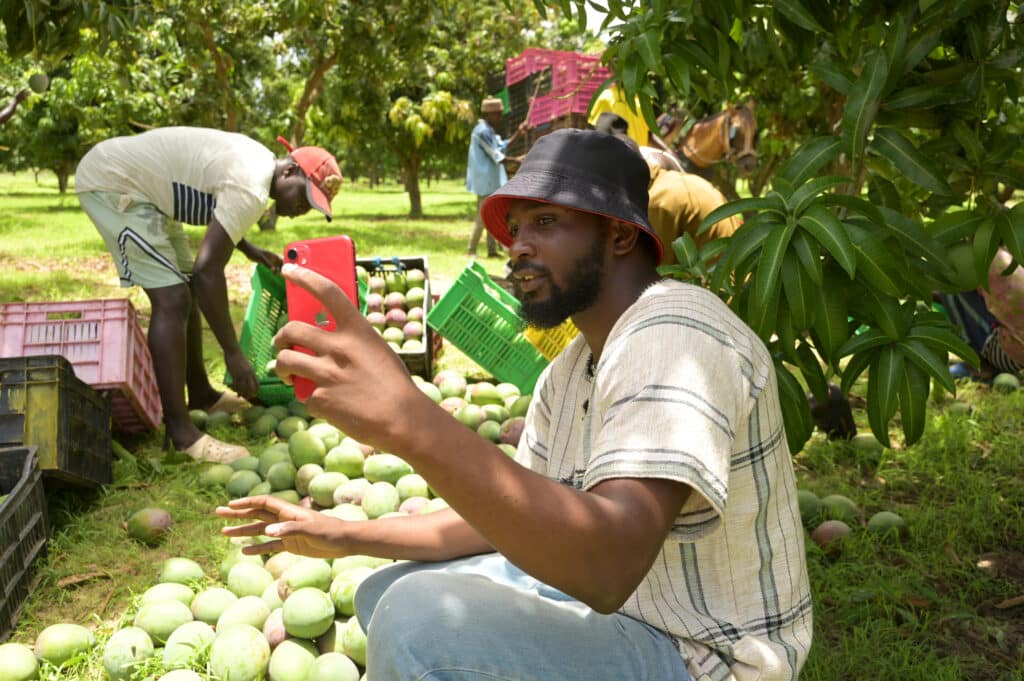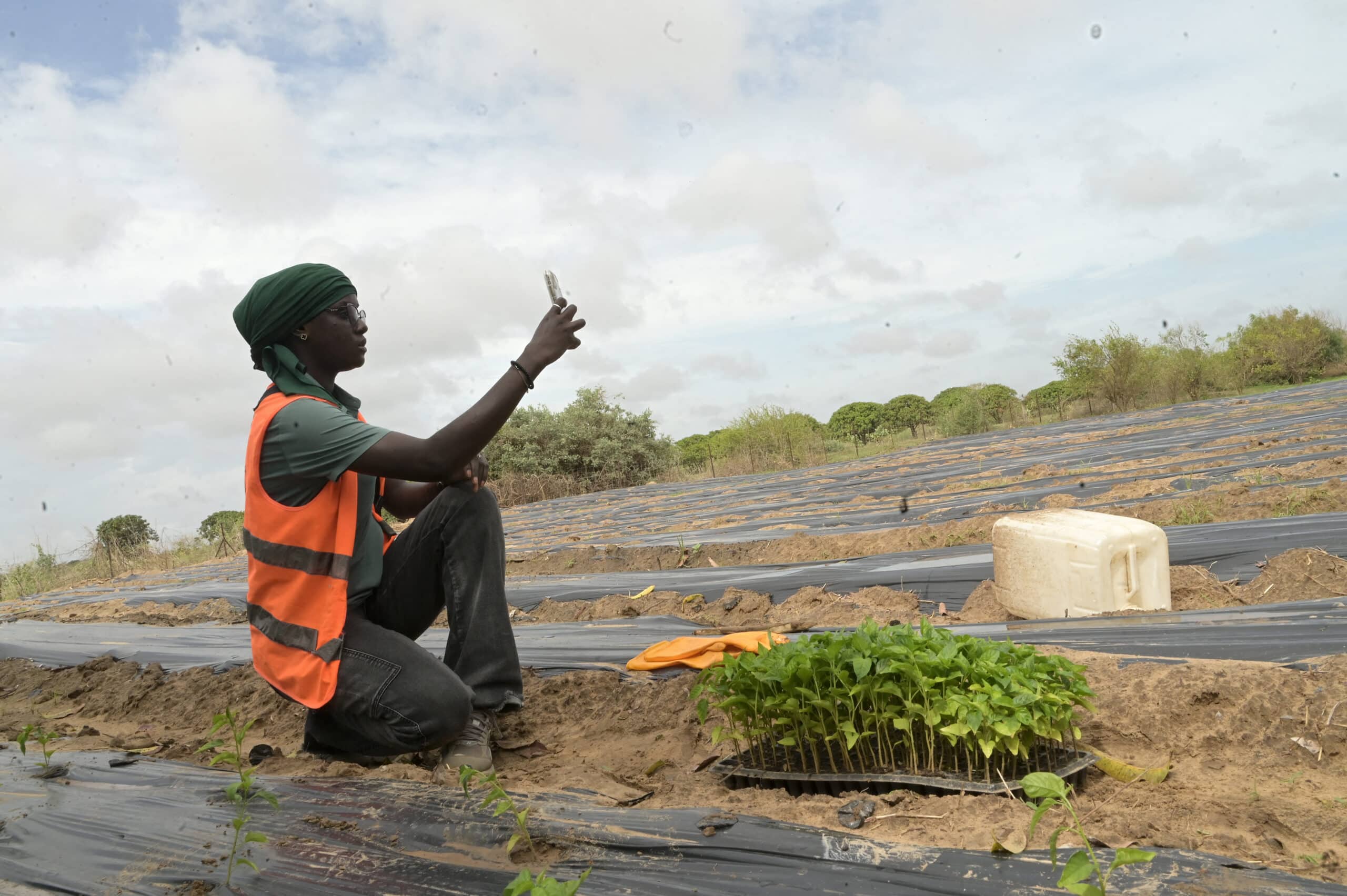Senegal ‘agri-influencers’ seek to shake up key sector

Thiès, Senegal — Crouched next to a pile of fresh mangoes, Senegalese farmer Mame Abdou Diop shoots a TikTok clip hoping it will be a hit with his burgeoning social media following.
Diop, 30, is part of a new wave of agricultural entrepreneurs in the West African nation embracing online platforms to boost sales, share knowledge and carve their own path in a key economic sector.
Since 2020, Diop has run a small business managing plots of land and growing a range of crops from watermelon and mangoes to onions and beans.
READ: Two First Ladies at presidential palace in a Senegal first
But since launching on TikTok, Instagram, Facebook, Snapchat and LinkedIn two years ago, he has seen profits soar and his client base more than double.
“I used to make videos for fun, I didn’t even know what kind of impact social media would have,” said Diop, who has amassed nearly 14,000 TikTok followers and 2,000 on Instagram.
But he soon realised the videos were “very good marketing,” he said in the village of Gadiaga, east of the capital Dakar.
Agriculture represents roughly 16 percent of Senegal’s GDP, but the industry suffers from chronic underperformance.
The new government has prioritised attaining food sovereignty, with the aim of creating more jobs in a country plagued by youth unemployment.
Senegal imports almost 70 percent of its food requirements, despite 60 percent of the labour force growing food crops, according to the International Fund for Agricultural Development.
‘Get more visibility’
Low productivity is due to a number of factors including a lack of quality infrastructure and technical support as well as poorly organised value chains and crop processing.
For Senegal’s young and increasingly urban, tech-savvy population, social media offers an opportunity for innovation.
Diop films himself in reels and adds his phone number to advertise his mangoes, which are sold directly to local businesses or exporters shipping to Europe or Morocco.
READ: Student becomes first death in growing Senegal election protests
Buyers contact Diop by text or through social platforms, and after a price is agreed, the crops are delivered directly.
He said social media allows him to bypass costly or inefficient middlemen, reduce the price and pick, process and sell his mangoes in a day.
N’Diaye Pape, 26, a fruit juice seller in Dakar, found Diop while scrolling on Instagram and appreciates the speed of his service.
“I saw the quality. So I contacted them and they delivered on time,” he said.
Social media also allows farmers to share and monetise technical expertise, said Helene Smertnik from research firm Caribou Digital, which studied the use of social media in Senegalese agriculture in partnership with the MasterCard Foundation.
“Quite a number of people become consultants and start making a decent amount of money,” she explained.

Using a stick to transplant a row of chillies at a farm, 27-year-old Nogaye Sene explained how Instagram had helped her fledgling consultancy take off.
“I started social networking in September… to get more visibility and to find people,” she said.
“They contact me directly on Instagram. So I give them my number, then I visit their fields and now I help them with production,” she added.
Sene, who describes herself as an agri-influencer, manages plots for around a dozen clients, helping with land development, market garden production and the planting of fruit trees.
She shares videos and selfies offering tips on how to grow and harvest crops, install irrigation systems and manage farming projects.
She found the majority of her clients through Instagram, where she now has over 3,000 followers.
Sharing expertise
“There is this quite fertile ground … in that there is this mix of youth that is more and more online and using social media both for entertainment and trade,” said Smertnik.
But the trend is in its infancy and mostly confined to urban individuals working in smaller-scale value chains, she said.
Agri-influencer and horticulture entrepreneur Adjaratou Kosse Faye is the founder of a social media cooperative sharing expertise and training with fellow producers.
What started as a small forum on the social media platform Clubhouse during the Covid pandemic is now a WhatsApp group with over 50 participants.
Faye said she had only met a handful of the members face-to-face but stressed that the group had allowed knowledge to be shared on a regional scale.
“We have farmers from Ivory Coast, Burkina Faso, The Gambia and Mali,” she said.
“I think it’s wonderful that we can trust each other and that social media has enabled us to create this network,” she added.